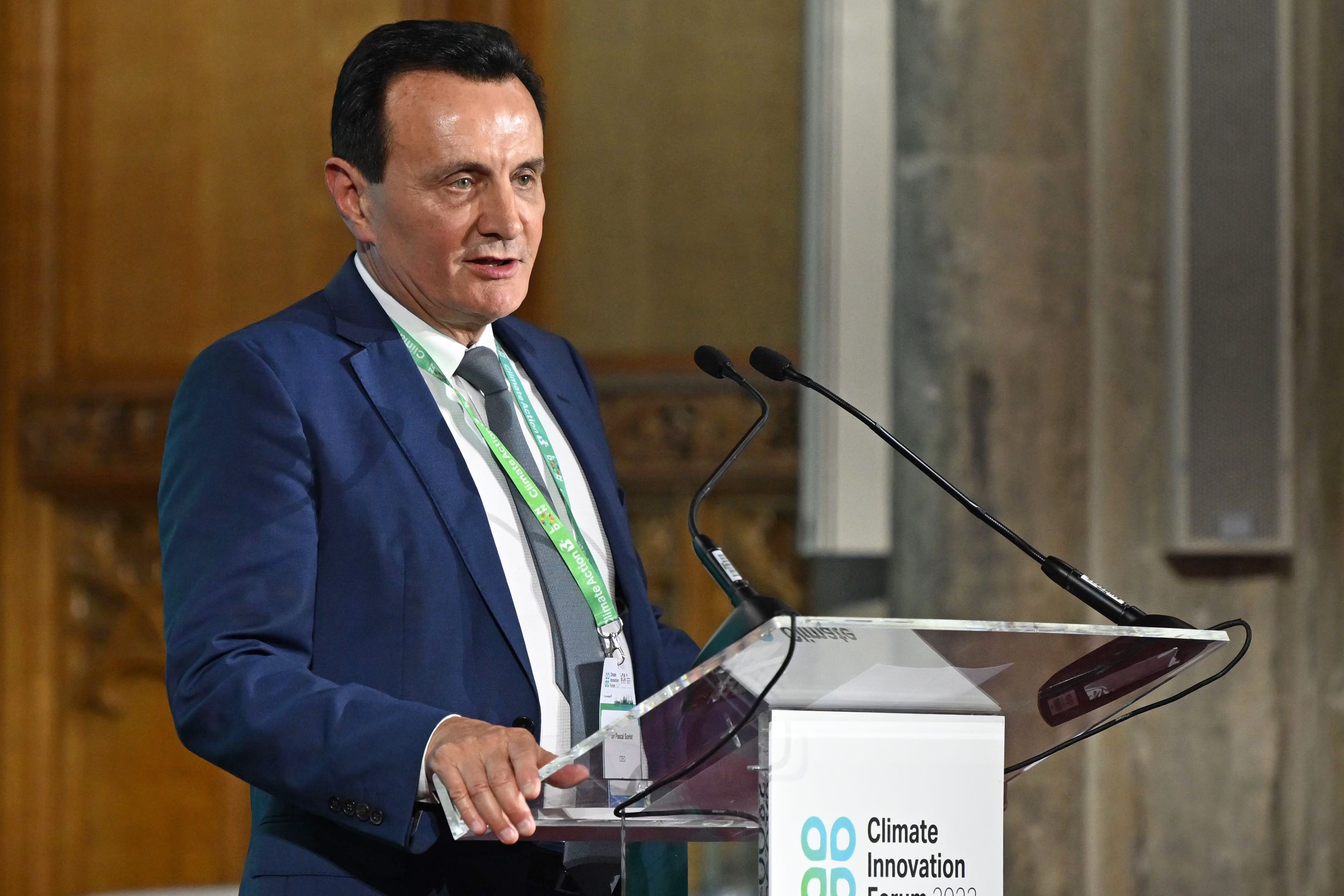AstraZeneca is paying its boss a record £19m a year. Is he worth it?
Pascal Soriot was already the highest-paid leader of a FTSE 100 company, but his controversial new pay deal has ignited fierce debate over how much is too much for top bosses, writes James Moore


Is any employee worth paying £18.7m? That’s the monster sum AstraZeneca has awarded its chief executive, Pascal Soriot, who’s in line for a £1.5m salary with the rest in mostly share-based bonuses.
Soriot is undoubtedly one of Britain’s top bosses. Over the past five years, AstraZeneca’s shares have increased by 82 per cent, turning £1,000 into £1,820 excluding dividend payments. By contrast, the FTSE 100 has improved by just under 7 per cent. Tracking the performance of the blue-chip stock index would have made you just £1,070 before dividends and charges.
The results are somewhat less impressive over the last year, during which AstraZeneca’s share price has declined by 6.5 per cent while the FTSE 100 has improved by 2 per cent. But it is the long term that really matters, especially with a company like this one, which is sustained by its research and the investments made into that. Over the long term, Astra under Soriot has been a pretty good place to park your money.
Another feather in his cap is the role he played in seeing off a hostile takeover bid from US rival Pfizer, which attempted a City smash-and-grab with a “take it or leave it” proposal at £55 a share, urging investors to revolt against AstraZenca’s rejection.
Despite grumbles from some appallingly short-sighted institutions, Soriot and his board won the day; Pfizer was sent packing – a good thing, given AstraZeneca shares today are trading at nearly twice that offer price.
One of the main objections to high pay for bosses is not just that they might get rewarded for failure – which, reprehensibly, still happens – but that they often get handed monstrous sums for plain mediocrity. This is not true of Soriot; the case for the defence is stronger for him than it would be for most of his peers.
However, while a bad CEO can wreck a good company, and a high-calibre boss is nice to have, business is ultimately a team sport.
AstraZeneca employs nearly 90,000 people, among them some of the world’s top researchers upon whom the company and its investors rely to produce blockbuster drugs.
Luke Hildyard, of the High Pay Centre, argues that Soriot – a professional manager, not an entrepreneur risking his own money to create a business – has pocketed more than £130m over the past decade. He is the highest-paid boss of any FTSE 100 company.
“When single individuals grab such a huge share of wealth that so many different stakeholders help to create, it inevitably invites questions about the proportionality, necessity or common sense of the pay practices,” Hildyard said.
That is before we get to the social context of having such highly-paid bosses; businesses are a part of society.
“This is also a matter that goes beyond pitiless economic or business logic, and relates to the kind of values we would want our society to reflect,” Hildyard added. “Some business figures have lamented people’s unease about prevailing executive pay levels, but in a country where millions of people struggle to cover the essential costs of living – housing, heating and food – we have probably become too inured to such huge pay awards and painful inequality.”
Research by the High Pay Centre puts the average FTSE 100 CEO pay at £3.81m, compared to the median full-time worker’s pay of just under £35,000.
It is not just the likes of Hildyard who have baulked at the sheer size of Soriot’s remuneration; it has sparked a debate in the City, where bumper earnings generate a lot less fuss.
Voting advisers Glass Lewis and Institutional Shareholder Services (ISS), neither of which could be regarded as pay headbangers, have voiced concerns and recommended votes against.
Russ Mould, at broker AJ Bell, said: “Does anyone really deserve to take home that amount of money? It’s not wildly out of kilter with some of the peer group and AstraZeneca clearly wants to do everything it can to keep the architect of its success. However, it begs the question whether pay in general has got out of hand in the pharma sector.”
Mould is correct. While Soriot’s package is toward the upper end of a basket of big pharma companies, it is behind US giants Lilly, AbbVie, Johnson & Johnson and Pfizer. Some big AstraZeneca shareholders even argue Soriot is underpaid for the sector.
Ultimately the big institutional investors who decide these things are delighted with what Astra’s impressive long-term performance has done for their portfolios, see Soriot as the architect of it, and don’t want him going anywhere. So they voted accordingly and he will get his money.
Of those who cast a vote, 64.4 per cent backed the company’s pay policy and 65.3 per cent backed the new “performance share plan”. That represents a relatively high level of dissent but a comfortable win all the same.
We will nonetheless be here again throughout what promises to be a long, hot AGM season in which companies try to grant excessive rewards to far less effective CEOs than Soriot. They may – quite rightly – find the going is a lot tougher.






Join our commenting forum
Join thought-provoking conversations, follow other Independent readers and see their replies
Comments